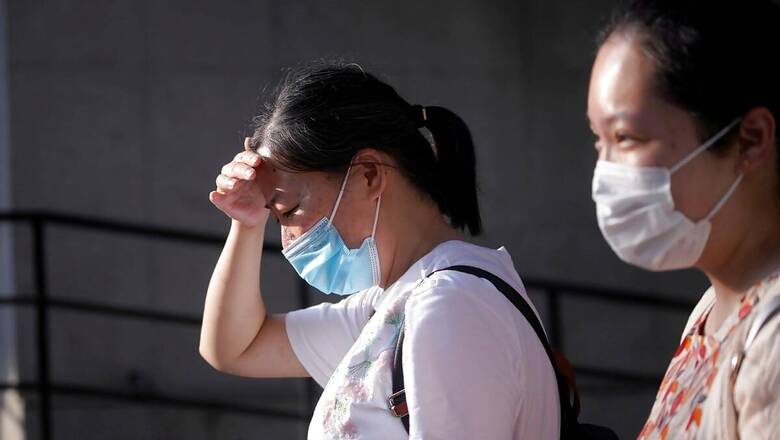
views
If there’s a state of mind apart from fear that has emerged globally as the COVID-19 pandemic spread across the world, it is fatigue. The fear of the severity of this potentially-fatal viral infection spurred nations across the globe to impose lockdowns while people adopted prevention measures like social distancing, wearing masks and handwashing. But as the pandemic progressed, fatigue regarding COVID-19 and all the associated lifestyle changes started to set in.
The many shades of pandemic fatigue
The term “caution fatigue” came into vogue as early as May-June 2020, as people started tiring from constant social distancing, wearing masks, washing their hands with soap and water and staying at home. A study in the Journal of Clinical Nursing in May 2020 also described “compassion fatigue” among nursing staff who were constantly working in challenging situations to provide critical and intensive care to COVID-19 patients. Another study published in the journal Cyberpsychology, Behavior and Social Networking in July 2020 examined the plight of those working from home, giving it the term “Zoom fatigue”.
No matter what term is used though, pandemic fatigue is now considered to be a real phenomenon. And as the COVID-19 pandemic continues to ravage the world, it is crucial to understand and overcome this fatigue and maintain all precautions.
Trends in pandemic fatigue
A new study published in PLoS One shows that trends in pandemic fatigue tended to shift as the COVID-19 pandemic dragged on. The study, which included more than 5,000 participants aged 18 to 101 years, analyzed how people from different age groups, genders and races performed five virus-preventive measures:
- Wearing a face mask
- Washing hands with soap and water or using hand sanitizers regularly
- Cancelling or postponing personal or social activities
- Avoiding eating at restaurants
- Avoiding public places
The researchers found that around the beginning of the pandemic in March 2020, all groups of people tended to follow preventive measures strictly. But as the pandemic progressed on to May 2020, people from older age groups were more likely to continue with the COVID-19 risk-preventive measures. Younger people not only began to have increased contact with people outside their households but also engaged in eating out and visiting public places.
Such trends, the study says, occur because the idea that advanced age increases the risks of severe COVID-19 was embedded in people’s minds early in the pandemic. This led to older people taking less risks, while younger and healthier people started engaging in risky behaviours. The study also found that women, those of higher socioeconomic status and those who live in places with a high number of COVID-19 cases also tended to stick to the preventive measures.
Tips to avoid pandemic fatigue
Given these trends in pandemic fatigue and the continued potency of COVID-19, it’s very important to tackle this issue and follow preventive measures better. Overcoming pandemic fatigue is not easy but the following tips might help:
- Instead of going with the flow, take a step back from your regular routine and analyze just how many risk-taking behaviours you engage in during a day. Even if you are young and healthy, these behaviours might increase your risk of COVID-19, so cut back on them.
- Motivate yourself to follow preventive measures by thinking about the health of your family and friends. COVID-19 can spread through households and communities quickly and not everyone can grapple with severe disease.
- Remember that these preventive measures can help you prevent not just COVID-19 but infectious diseases of all types. Following safe hygiene methods can keep you physically and mentally fit throughout your life.
- Create new and enjoyable routines like virtual parties while maintaining safety precautions. This will not only help you adapt to the changed scenario of the world but may also be fun.
- If the mental fatigue due to the pandemic seems beyond your control then talk to a doctor or mental healthcare professional without delay.
For more information, read our article on Steps to beat the fatigue of virtual meetings.
Health articles on News18 are written by myUpchar.com, India’s first and biggest resource for verified medical information. At myUpchar, researchers and journalists work with doctors to bring you information on all things health.
Read all the Latest News, Breaking News and Coronavirus News here
















Comments
0 comment